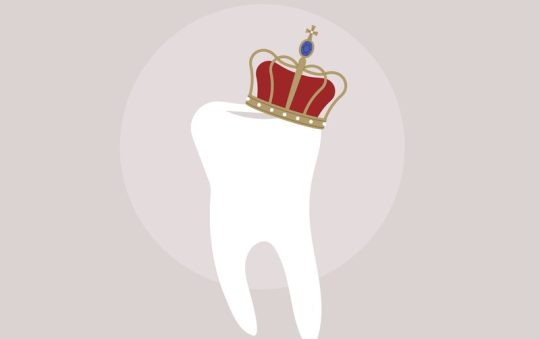Relapse is a common part of the recovery journey, but understanding it is key to preventing it. For many, it’s not a sign of failure but an opportunity to learn and strengthen their resolve. The key is to plan for it while aiming to prevent it altogether. If you’ve been through addiction recovery, you know that building a solid support system is crucial to maintaining long-term sobriety.
Recognizing the Stages of Relapse
Relapse doesn’t happen all at once; it usually unfolds in stages. Becoming aware of these stages can help in identifying and addressing them early.
-
Emotional Relapse: The individual is not actively thinking about using, but their emotions and behaviors are setting them up for it. Stress and negative feelings often emerge, making it crucial to seek help.
-
Mental Relapse: This is the stage of internal conflict. Part of the person wants to use, while the other part wants to remain sober. Thoughts about using return, and they might romanticize past use or plan ways to relapse.
-
Physical Relapse: This is the stage where the person acts on their urges, and it usually starts with the first drink or drug.
Building a Strong Support Network
A strong support system is one of the most effective tools in preventing relapse. It involves a group of people who offer encouragement, assistance, and accountability in your journey.
1. Family and Close Friends
Your family and close friends play a significant role in your recovery process. They provide a foundation of love and trust, which are essential for long-term recovery.
-
Open Communication: Keep communication lines open with family and friends. Share your thoughts and feelings with them, and don’t be afraid to ask for help.
-
Setting Boundaries: It’s important to set healthy boundaries with loved ones. Ensure they know what is supportive and what might be detrimental to your recovery.
2. Support Groups
Joining support groups provides you with a community of people who understand what you are going through.
-
Recovery Communities: Participate in groups like Altitude Recovery Community that cater to those in recovery. These offer shared experiences and encouragement that can be very comforting.
-
Share and Listen: Sharing your experiences allows others to learn, and listening to others’ stories helps you avoid similar pitfalls.
3. Professional Counseling and Therapy
Engaging with a therapist or counselor provides professional insight and strategies to manage triggers and stressors effectively.
-
Cognitive Behavioral Therapy (CBT): This method helps identify negative thinking patterns and replace them with healthy ones.
-
Motivational Interviewing: The approach encourages you to find your motivation and commitment to change.
Developing Personal Coping Strategies
Learning and practicing coping strategies can help manage cravings, stress, and other factors that might lead to relapse.
1. Mindfulness and Meditation
Practicing mindfulness and meditation helps you stay in the present moment and reduces stress. When you regularly incorporate it into your routine, it can significantly reduce the chance of relapse.
2. Regular Physical Activity
Exercise is a natural stress reliever and mood booster. Activities like yoga, walking, or going to the gym can help you stay focused on recovery.
Maintaining a Healthy Lifestyle
Adopting a healthy lifestyle is essential for sustaining recovery in the long term.
1. Nutrition
A balanced diet helps improve mood and energy levels. Proper nutrition supports mental health and physical well-being, both of which are critical in recovery.
2. Sleep
Getting enough rest is crucial. Sleep deprivation can increase stress, which can push one towards relapse.
Identifying and Managing Triggers
Understanding what triggers the urge to use substances is a powerful strategy in preventing relapse.
-
Avoidance: Whenever possible, avoid people, places, or situations that trigger cravings.
-
Alternative Strategies: Replace old, unhealthy habits with new, healthy ones. For example, if stress is a trigger, consider implementing exercise as a daily routine to manage it.
For those struggling with opiate addiction, seeking the support of a professional opiate detox center in Southern California can be an integral step. Such centers can provide safe, medically-monitored detox and equip individuals with the tools needed for sustainable recovery.
Setting and Celebrating Milestones
Setting small, achievable goals in your recovery journey helps you stay motivated. Celebrate these milestones to keep your spirits high.
1. Short-Term Goals
These can include daily or weekly targets, like attending all therapy sessions for that week or practicing meditation every morning.
2. Long-Term Goals
Consider setting monthly or yearly milestones. These could involve personal achievements, such as getting a job or enrolling in a course.
Why Are Rehabilitation Facilities Crucial
Rehabilitation facilities offer comprehensive programs that should be tailored to individual needs. Facilities in specific areas, such as Southern California inpatient drug rehab, have uniquely structured programs that may include both medical and holistic approaches to treatment.
-
Medical Support: Access to professional medical care during detox and recovery is crucial for managing withdrawal and any co-occurring mental health conditions.
-
Holistic Treatments: Incorporating activities such as art therapy, outdoor activities, and yoga can provide significant benefits.
Staying Informed with Ongoing Education
Stay educated about your addiction and recovery process to remain empowered. Knowledge is a powerful tool to understand and combat addiction.
Workshops and Seminars
Participate in workshops or seminars about addiction to learn more about managing and preventing relapse. You might explore new techniques or hear success stories that inspire you.
Literature
Read books and articles on recovery strategies, biographies of those who successfully recovered, and research on new therapies.
Final Thoughts
Preventing relapse is an ongoing journey that involves various strategies, from building a robust support system to setting and achieving personal goals. Remember, it’s about progress, not perfection. Recovery is a personal journey that might look different for everyone, and that’s completely okay. Establishing a solid foundation with support from family, friends, professionals, and community resources will keep you on the path to long-term recovery. With the right tools and mindset, living a fulfilling and sober life is entirely within reach.





